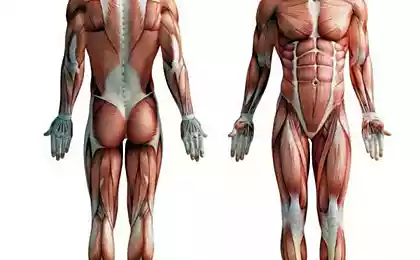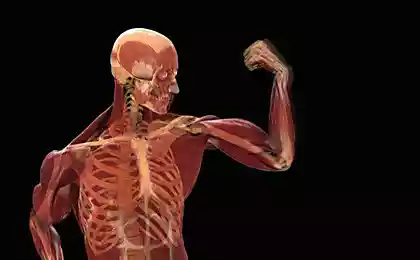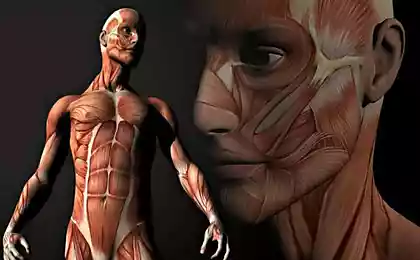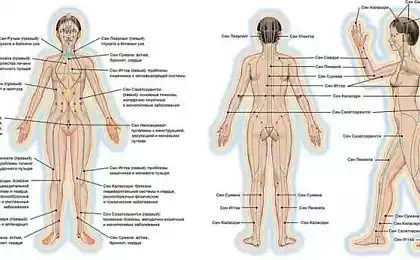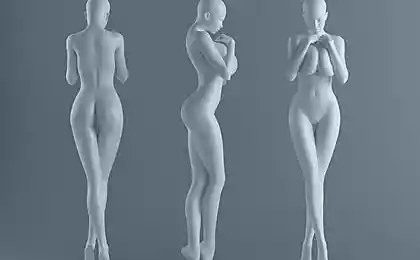1472
The unexpected and unpleasant things in the human body
Our body is quite a lot of things, the thought of which may be unpleasant to you: a sweat, dirt, pus, undigested food.
Did you know that our body more bacteria than cells? And the fact that on your lashes mites live?
Bacteria and people
In a healthy human body is much less human than you might think. In our body is 10 times more organisms than human cells, only about 100 trillion bacteria and they are found in every part of our body.
Less than 1 percent of bacteria in the human body can cause disease, while others help to carry out essential functions. Thus, for example bacteria Lactobacillus acidophilus, are used in the manufacture of dairy products, to help digest food and fight against harmful microbes.
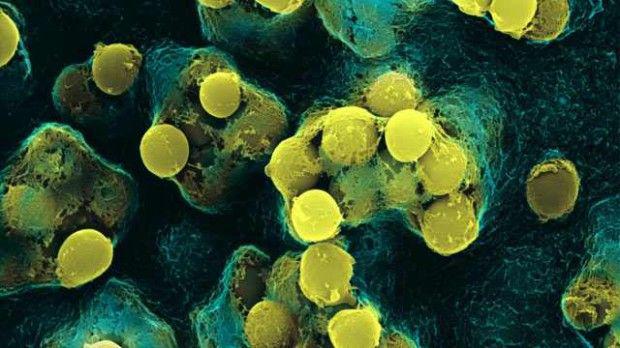
Gaza in the stomach, a lot of gas
All the people and all the released gases belch. If you eat, you produce gas when the bacteria in the digestive system, food is digested. On average, we produce gases by 14 to 23 times a day, that is, approximately once per hour.
Belching gas and contains carbon dioxide, oxygen, nitrogen, hydrogen and methane sometimes, and sometimes sulfur. Some foods make us produce more emissions, including those that are high in fiber and dairy products.
Foods that contain wheat or milk also contribute to flatulence, belching and bloating, since our body can not properly digest them. But most of the gases caused by swallowed air.

Vomiting
The stomach is able to accommodate an average of about 3 liters masticated food and beverages. You will learn how to have reached the limit of feeling of nausea that occurs after a meal.
While some studies indicate that your stomach can stretch to accommodate more than 3 liters of food and beverages, it can spontaneously explode if we try to accommodate 5 liters.
If your stomach will try to "close the gate", food and drink will not go further into the intestine and instead go back and sometimes forced. Vomiting is controlled by "vomiting center" in the brain, and it can cause a number of reasons, including poisoning, infections, certain diseases and pregnancy, as well as some treatments, such as chemotherapy.
If you can not or do not want to induce vomiting, your body tries to cope with undesirable contents in the stomach. In this case, the leakage may be formed in the walls of the stomach, allowing partially digested food to leak. Then vomiting does not seem like such a disgusting.

Tonsillolith
Tonsillolith, also known as tonzillolity are a mixture of bacteria, dead cells and mucus that has accumulated in the recesses of the tonsils.
If you suffer from chronic tonsillitis or have had an inflammation of the tonsils, you are more likely to tonsillolith. People with dry mouth as they are often found.
Some people do not notice them, while others feel discomfort when they harden. They look like white bumps on the back of the throat. Since bacteria love to eat those, what it consists of these tubes, they often give rise to bad breath.
You can try to get rid of them using the rinse or procedures vacuum aspiration, which is held LORom. But the only way to get rid of them, but to which resort in extreme cases, a tonsillectomy.

Excrement
When we eat and drink, our body needs only a few hours to extract the vitamins and nutrients that we need. The rest of you need to withdraw.
Our intestine is made up of small and large intestines plus rectum. The small intestine is a tube length of about 6 meters and 2, 5 cm in diameter, and large intestine - about 1 to 5 meters in length and 7, 6 cm in diameter. And it's full of waste.
Our chair is made up of undigested food, but also in the mucus, bacteria and dead cells, and gives it a brown color. In normal peristalsis, the chair is about 75 percent of the water, and we allocate approximately 85-225 grams of feces daily.
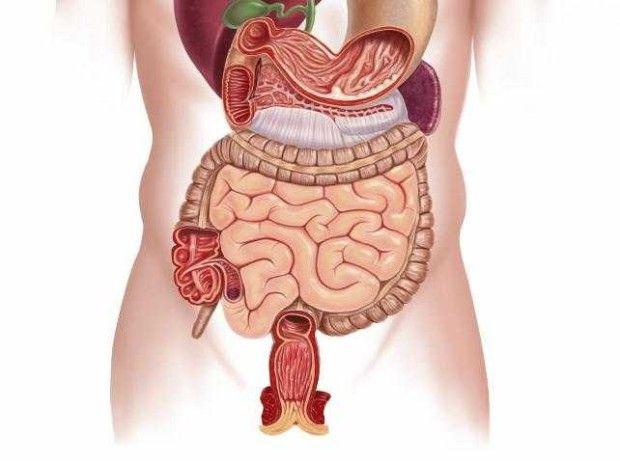
The acid in the stomach, which can dissolve the metal
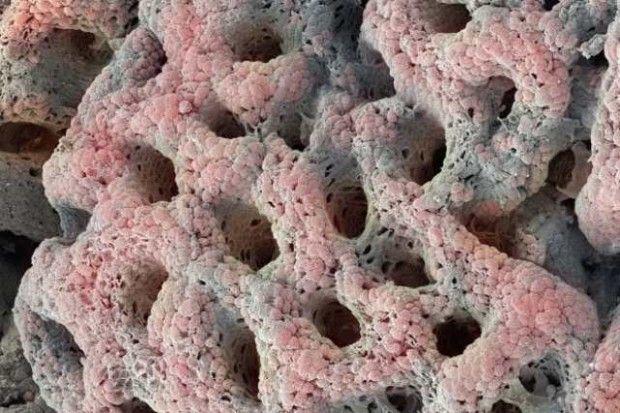
Mites (demodex) lashes
On your eyelashes ticks live, and what you are older and fatter than your skin, the more confidence we can assert this. It was established that ticks, namely Demodex folliculorum species inhabit the lashes more than 80 percent of people over 60 years.
Demodex Mites - a facial ticks, and if you could see them with the naked eye would see them live on your eyelashes and hair follicles. And one ciliary follicle can live up to 25 ticks.
Although the mere fact of their existence on your face -dovolno frightening, they are mostly harmless, but can cause an allergic reaction in sensitized persons.
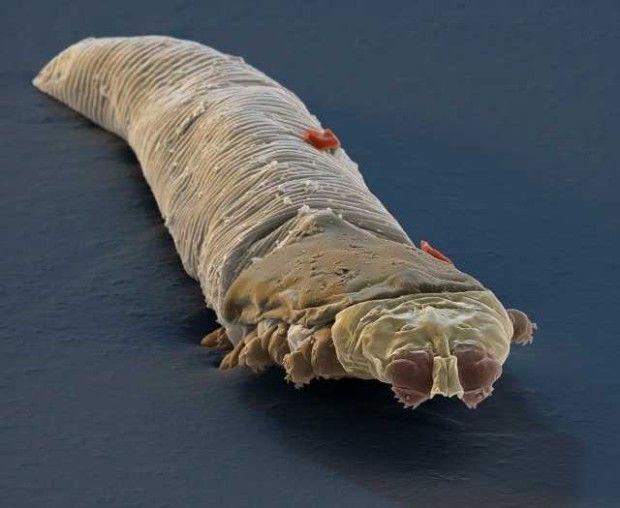
Earwax
Many people are turning to professional procedures to remove earwax, despite the fact that our ear canal is a self-cleaning organ of the body.
Earwax - is an oily, waxy substance produced by glands in the ear canal. So protect your ears themselves.
It prevents the ingress of foreign substances into the ears, including dust and insects. Also wax helps moisturize the ears and protects the ear canal from irritation and has antibacterial properties.
Earwax composed of dead skin cells, saturated and unsaturated fatty acids, alcohols, squalene and cholesterol. On average we identify about 12-20 mg of wax per month.
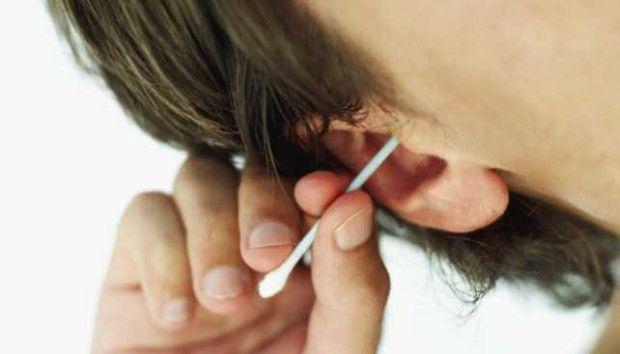
Lipoma (wen)
Our body maintains energy reserves in fat cells, but sometimes the fat cells grow where they should not be. This leads to the formation of fatty tumors, lipoma also known. While many believe talc disgusting, they are usually quite harmless.
They are a mass of small fat cells under the skin between the skin and muscles. Such bumps soft to the touch and mobile. Usually a lipoma grows no more than a few centimeters, and most often appear on the neck, shoulders, arms, upper back, thighs and buttocks.
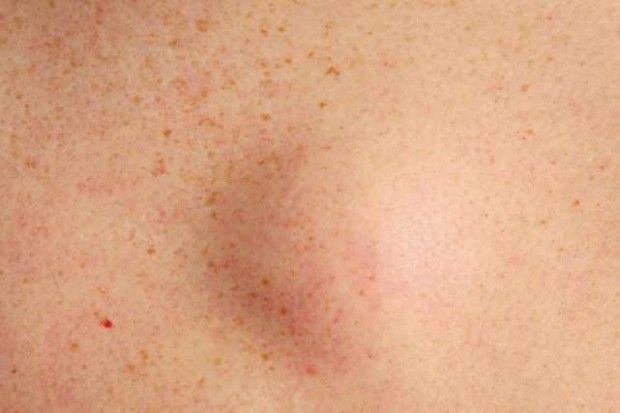
Mucus
Mucus, phlegm, "gnats" - as if we did not call it, it exists, and it has its own reasons.
Mucus lines the inside of the nose, mouth, sinuses, throat, lungs, gastrointestinal tract, and there is always, not just when you are sick colds. Our body produces about 1-2 liters of mucus every day, including a new party that makes your nose every 20 minutes.
The mucus acts as a wetting and without our body tissue to dry. Since it is still sticky, it also acts as a collector of "garbage", including bacteria, pollen, dirt, fungi, smoke and other substances that we inhale, and prevents them from invading our body.
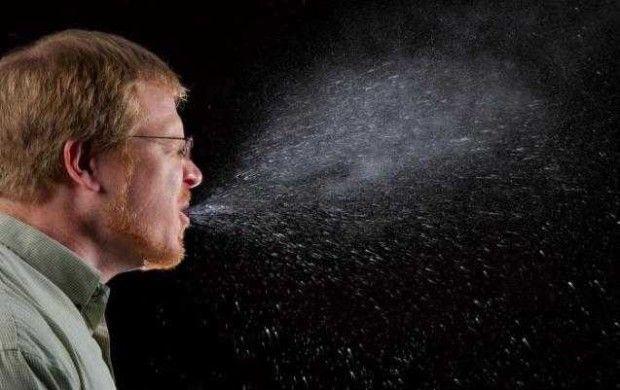
Did you know that our body more bacteria than cells? And the fact that on your lashes mites live?
Bacteria and people
In a healthy human body is much less human than you might think. In our body is 10 times more organisms than human cells, only about 100 trillion bacteria and they are found in every part of our body.
Less than 1 percent of bacteria in the human body can cause disease, while others help to carry out essential functions. Thus, for example bacteria Lactobacillus acidophilus, are used in the manufacture of dairy products, to help digest food and fight against harmful microbes.

Gaza in the stomach, a lot of gas
All the people and all the released gases belch. If you eat, you produce gas when the bacteria in the digestive system, food is digested. On average, we produce gases by 14 to 23 times a day, that is, approximately once per hour.
Belching gas and contains carbon dioxide, oxygen, nitrogen, hydrogen and methane sometimes, and sometimes sulfur. Some foods make us produce more emissions, including those that are high in fiber and dairy products.
Foods that contain wheat or milk also contribute to flatulence, belching and bloating, since our body can not properly digest them. But most of the gases caused by swallowed air.

Vomiting
The stomach is able to accommodate an average of about 3 liters masticated food and beverages. You will learn how to have reached the limit of feeling of nausea that occurs after a meal.
While some studies indicate that your stomach can stretch to accommodate more than 3 liters of food and beverages, it can spontaneously explode if we try to accommodate 5 liters.
If your stomach will try to "close the gate", food and drink will not go further into the intestine and instead go back and sometimes forced. Vomiting is controlled by "vomiting center" in the brain, and it can cause a number of reasons, including poisoning, infections, certain diseases and pregnancy, as well as some treatments, such as chemotherapy.
If you can not or do not want to induce vomiting, your body tries to cope with undesirable contents in the stomach. In this case, the leakage may be formed in the walls of the stomach, allowing partially digested food to leak. Then vomiting does not seem like such a disgusting.

Tonsillolith
Tonsillolith, also known as tonzillolity are a mixture of bacteria, dead cells and mucus that has accumulated in the recesses of the tonsils.
If you suffer from chronic tonsillitis or have had an inflammation of the tonsils, you are more likely to tonsillolith. People with dry mouth as they are often found.
Some people do not notice them, while others feel discomfort when they harden. They look like white bumps on the back of the throat. Since bacteria love to eat those, what it consists of these tubes, they often give rise to bad breath.
You can try to get rid of them using the rinse or procedures vacuum aspiration, which is held LORom. But the only way to get rid of them, but to which resort in extreme cases, a tonsillectomy.

Excrement
When we eat and drink, our body needs only a few hours to extract the vitamins and nutrients that we need. The rest of you need to withdraw.
Our intestine is made up of small and large intestines plus rectum. The small intestine is a tube length of about 6 meters and 2, 5 cm in diameter, and large intestine - about 1 to 5 meters in length and 7, 6 cm in diameter. And it's full of waste.
Our chair is made up of undigested food, but also in the mucus, bacteria and dead cells, and gives it a brown color. In normal peristalsis, the chair is about 75 percent of the water, and we allocate approximately 85-225 grams of feces daily.

The acid in the stomach, which can dissolve the metal

Mites (demodex) lashes
On your eyelashes ticks live, and what you are older and fatter than your skin, the more confidence we can assert this. It was established that ticks, namely Demodex folliculorum species inhabit the lashes more than 80 percent of people over 60 years.
Demodex Mites - a facial ticks, and if you could see them with the naked eye would see them live on your eyelashes and hair follicles. And one ciliary follicle can live up to 25 ticks.
Although the mere fact of their existence on your face -dovolno frightening, they are mostly harmless, but can cause an allergic reaction in sensitized persons.

Earwax
Many people are turning to professional procedures to remove earwax, despite the fact that our ear canal is a self-cleaning organ of the body.
Earwax - is an oily, waxy substance produced by glands in the ear canal. So protect your ears themselves.
It prevents the ingress of foreign substances into the ears, including dust and insects. Also wax helps moisturize the ears and protects the ear canal from irritation and has antibacterial properties.
Earwax composed of dead skin cells, saturated and unsaturated fatty acids, alcohols, squalene and cholesterol. On average we identify about 12-20 mg of wax per month.

Lipoma (wen)
Our body maintains energy reserves in fat cells, but sometimes the fat cells grow where they should not be. This leads to the formation of fatty tumors, lipoma also known. While many believe talc disgusting, they are usually quite harmless.
They are a mass of small fat cells under the skin between the skin and muscles. Such bumps soft to the touch and mobile. Usually a lipoma grows no more than a few centimeters, and most often appear on the neck, shoulders, arms, upper back, thighs and buttocks.

Mucus
Mucus, phlegm, "gnats" - as if we did not call it, it exists, and it has its own reasons.
Mucus lines the inside of the nose, mouth, sinuses, throat, lungs, gastrointestinal tract, and there is always, not just when you are sick colds. Our body produces about 1-2 liters of mucus every day, including a new party that makes your nose every 20 minutes.
The mucus acts as a wetting and without our body tissue to dry. Since it is still sticky, it also acts as a collector of "garbage", including bacteria, pollen, dirt, fungi, smoke and other substances that we inhale, and prevents them from invading our body.










